Essential Programs Providing Veteran Housing Assistance You Need to Explore

Veterans returning from service often face numerous challenges, one of the most pressing being access to affordable and stable housing. The transition to civilian life can be daunting, and many veterans struggle to secure a place to call home. According to the U.S. Department of Housing and Urban Development (HUD), approximately 37,000 veterans experience homelessness on any given night. This alarming statistic highlights the urgent need for comprehensive housing assistance programs tailored specifically for veterans. Fortunately, various programs and resources exist to provide this essential support. This blog will explore essential programs that veterans should consider when seeking housing assistance, delving into their benefits, eligibility criteria, and how to access them.
U.S. Department of Veterans Affairs (VA) Programs
The U.S. Department of Veterans Affairs (VA) plays a pivotal role in providing housing assistance to veterans. The VA offers several programs designed to meet the diverse needs of veterans and their families. Two key programs are:
VA Home Loan Benefits: The VA Home Loan program helps veterans obtain mortgages without requiring a down payment or private mortgage insurance. This program is particularly beneficial for those who may have limited savings or face difficulties qualifying for traditional loans. Eligible veterans can access competitive interest rates, making homeownership more affordable. Furthermore, VA loans can be used to purchase single-family homes, multi-family properties, or even to refinance existing loans.
Eligibility: To qualify for VA home loans, veterans must meet specific service requirements, typically having served for at least 90 consecutive days of active service during wartime or 181 days during peacetime. Additionally, veterans must obtain a Certificate of Eligibility (COE) from the VA, which verifies their eligibility for benefits.
Veterans Housing Assistance Program (VHA): The VHA provides temporary housing assistance for veterans experiencing homelessness. This program connects veterans with safe and supportive housing environments and helps them transition back into permanent housing. The VHA also offers case management services, which can include job training, mental health support, and financial counseling.
Eligibility: To qualify for VHA services, veterans must demonstrate that they are experiencing homelessness or are at risk of becoming homeless. The program is designed to assist low-income veterans who need immediate support to secure stable housing.
Supportive Services for Veteran Families (SSVF)
The Supportive Services for Veteran Families (SSVF) program is a vital resource aimed at preventing homelessness among very low-income veteran families. This program provides a comprehensive array of supportive services, including financial assistance for rent and utilities, as well as support for housing search and placement.
Financial Assistance: SSVF offers time-limited financial assistance to help veterans cover short-term expenses, such as rent arrears or utility bills, that may threaten their housing stability. This financial support is crucial for families facing unexpected financial hardships.
Housing Search Assistance: Veterans enrolled in the SSVF program receive guidance and support in their search for stable housing. Case managers work closely with families to identify suitable housing options and provide referrals to landlords willing to rent to veterans.
Access to Community Resources: In addition to housing support, SSVF connects veterans with community resources such as job training, mental health services, and substance abuse counseling. This holistic approach addresses the underlying issues that may contribute to housing instability.
Eligibility: To qualify for SSVF services, veterans must have a household income below 50% of the area median income and meet specific service requirements. Interested veterans can apply through local SSVF providers, which can be found on the VA’s website.
HUD-Veterans Affairs Supportive Housing (HUD-VASH)
The HUD-Veterans Affairs Supportive Housing (HUD-VASH) program is a collaborative effort between HUD and the VA that aims to end homelessness among veterans. This initiative provides rental assistance vouchers to homeless veterans, enabling them to secure permanent housing in the community.
Rental Assistance: HUD-VASH vouchers cover a portion of the rent, making it more affordable for veterans to secure housing. Participating veterans are responsible for paying a small portion of their income toward rent, while the HUD-VASH program covers the remainder.
Case Management Services: In addition to rental assistance, HUD-VASH provides access to case management services through the VA. Case managers work with veterans to help them maintain stable housing and connect them with essential resources, including employment opportunities and mental health support.
Eligibility: Veterans must meet specific eligibility criteria to qualify for HUD-VASH. Generally, they must be homeless, meet the VA’s definition of homelessness, and have a referral from a VA medical center. Interested veterans can contact their local VA office to learn more about the program and the application process.
Transitional Housing Programs
Various nonprofit organizations offer transitional housing programs specifically designed for veterans. These programs provide temporary housing and supportive services to help veterans reintegrate into society and regain their independence. Notable organizations include:
The Salvation Army: The Salvation Army offers transitional housing programs for homeless veterans and their families. These programs focus on providing stability and resources to help veterans secure permanent housing. Participants receive access to case management services, job training, and mental health support.
Veterans Inc.: This organization provides a range of services, including transitional housing, permanent supportive housing, and job training programs designed to assist veterans in their reintegration process. Veterans Inc. focuses on helping veterans gain the skills and resources needed to achieve lasting stability.
Warrior Haven: Warrior Haven is another nonprofit organization dedicated to supporting veterans experiencing homelessness. The organization offers transitional housing, counseling, and job placement services to help veterans rebuild their lives.
Local and State Programs
In addition to federal programs, many states have implemented initiatives to assist veterans with housing. These programs can vary significantly depending on location and may include:
Property Tax Exemptions: Some states offer property tax exemptions for veterans, which can significantly reduce the financial burden of homeownership. These exemptions may apply to disabled veterans or those who meet specific income criteria.
State-Specific Housing Assistance Programs: Many states have established housing assistance programs targeting veterans. These may include rental assistance, homebuyer assistance, or supportive housing services. It’s essential for veterans to research local resources and reach out to state veteran affairs offices for information on available programs.
Nonprofit Organizations and Community Resources
Numerous nonprofit organizations are dedicated to supporting veterans in need of housing assistance. These organizations often provide a combination of financial support, housing referrals, and advocacy services. Some prominent nonprofits include:
- Operation Homefront: This organization provides temporary housing assistance and financial support to veterans and their families during times of crisis. Operation Homefront focuses on helping veterans secure stable housing while providing them with essential resources to overcome obstacles.
- Homes for Our Troops: Homes for Our Troops builds and donates specially adapted homes for severely injured veterans. The organization aims to help these veterans achieve independence and improve their quality of life by providing them with safe and accessible housing.
- Veterans Outreach Program: This nonprofit organization offers various services, including housing assistance, financial counseling, and job training for veterans and their families. The Veterans Outreach Program is committed to empowering veterans to achieve self-sufficiency and stability.
Homeless Veteran Reintegration Program (HVRP)
The Homeless Veteran Reintegration Program (HVRP) is a unique initiative designed to assist homeless veterans in reintegrating into civilian life. HVRP focuses on providing employment services, job training, and housing assistance to help veterans regain their independence.
Employment Services: HVRP connects veterans with job training programs, resume workshops, and employment opportunities. The program also collaborates with local employers to create job placements specifically for veterans.
Housing Assistance: HVRP participants may receive referrals to housing programs and services tailored to their needs. This support ensures that veterans have access to stable housing while pursuing employment.
Eligibility: Homeless veterans who are seeking employment and housing assistance can apply for HVRP services through local workforce development offices or nonprofit organizations.
Veterans Benefits Administration (VBA)
The Veterans Benefits Administration (VBA) is another essential resource for veterans seeking housing assistance. The VBA administers various benefit programs, including disability compensation, pension programs, and education benefits that can indirectly support housing stability.
Disability Compensation: Veterans with service-connected disabilities may be eligible for disability compensation, which can provide financial support for housing-related expenses.
Pension Programs: Low-income veterans may qualify for pension benefits, which can be used to cover housing costs and other essential expenses.
Accessing VBA Benefits: Veterans can apply for benefits through the VBA website or by visiting a regional VA office. The application process may vary depending on the specific benefit being sought.
The Role of Community Support and Advocacy
Community support and advocacy play a crucial role in assisting veterans with housing challenges. Local organizations, veteran service organizations (VSOs), and community groups often collaborate to provide resources and support to veterans in need.
Veteran Service Organizations (VSOs): VSOs, such as the American Legion, Veterans of Foreign Wars (VFW), and Disabled American Veterans (DAV), offer a range of services, including assistance with benefits claims and housing resources. These organizations are instrumental in advocating for veterans’ rights and connecting them with essential resources.
Community Outreach Programs: Local outreach programs often host events, workshops, and informational sessions to educate veterans about available housing assistance resources. Engaging with these programs can help veterans navigate the complexities of housing support.
How to Access Housing Assistance Programs
Accessing housing assistance programs can sometimes be overwhelming, but taking the following steps can simplify the process:
- Research Available Programs: Start by researching local, state, and federal housing assistance programs specifically designed for veterans. Websites like the VA, HUD, and local veteran affairs offices can provide valuable information.
- Contact Local VA Offices: Reach out to local VA offices or veteran service organizations to inquire about available resources. They can provide guidance on eligibility requirements and the application process.
- Gather Necessary Documentation: When applying for housing assistance, be prepared to provide documentation, such as proof of service, income statements, and any relevant financial information.
- Complete Applications: Carefully fill out applications for housing assistance programs, ensuring that all required information is included. If you have questions, don’t hesitate to ask for assistance.
- Stay Engaged: Once you’ve applied, maintain communication with the program administrators and follow up on your application status. Engaging with community resources can also help you stay informed about additional support.
Conclusion
Navigating the housing landscape can be challenging for veterans, but numerous programs and resources are available to assist them in securing stable and affordable housing. From federal initiatives to local nonprofits, veterans should explore the various options available to them. By utilizing these resources, veterans can find the support they need to successfully transition back into civilian life and ensure they have a safe place to call home.
The importance of community support cannot be overstated. By working together, organizations, local governments, and community members can create an environment that fosters stability, understanding, and support for veterans. It’s crucial for veterans to reach out and take advantage of these programs, as they play a vital role in improving their quality of life and fostering a successful reintegration into society.
Save Money on Your Wireless Phone Service
If you qualify for certain government benefits, you may also be eligible for Lifeline. Lifeline is a government program that help low-income consumers receive free or heavily discounted communication services.
Click here to find out more and apply for this valuable benefit.
Offer subject to change.



